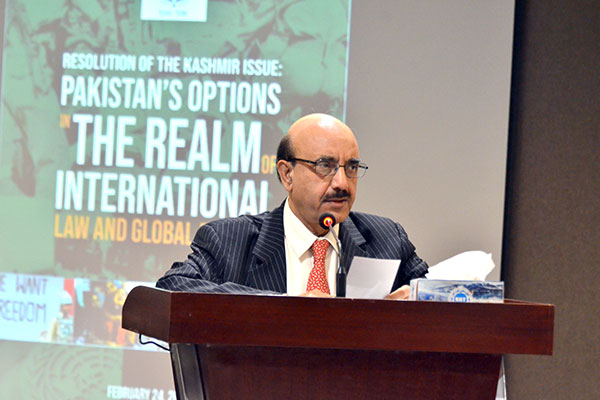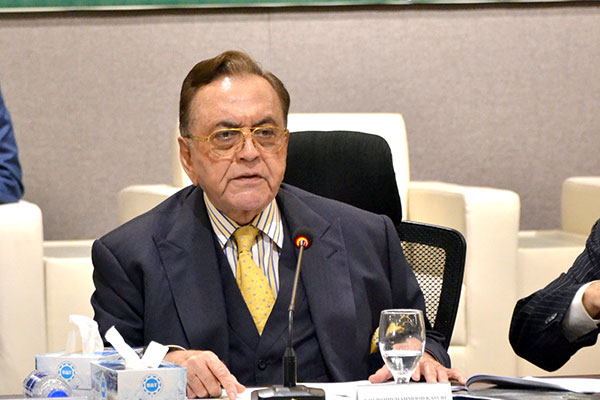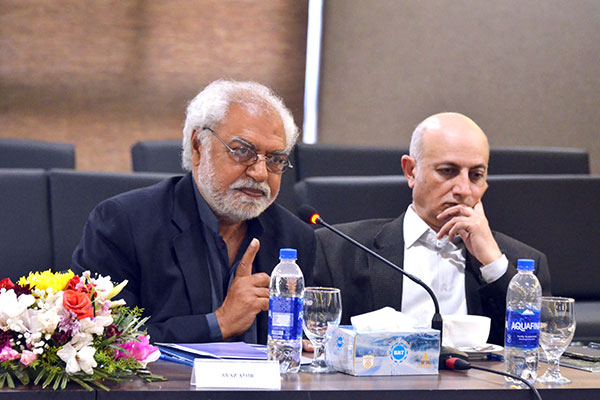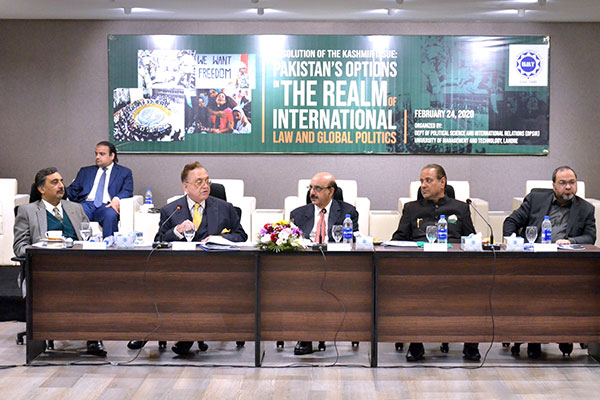Department of Political Science holds Conference on Kashmir Issue
Monday, February 24 2020
The conference on Resolution of Kashmir Issues commenced with prominent figures of Pakistan bringing forth their arguments and proposing viable solutions.


Sardar Masood Khan, President of Azad Jammu and Kashmir applauded the efforts of the organizers and thanked Ibrahim Hasan Murad, President ILM Trust/UMT for inviting him at the event. He said, after taking up the office, he drafted a six-point agenda that he has been relentlessly pursuing for the last three years. He said this agenda emphasizes upon garnering the support of the international community for the Kashmir cause, to make Pakistan strong and prosperous, to reach-out to the Indian civil society and build a lobby and to strengthen the diaspora community. Talking about the resolution of Kashmir issue, he added that he was hopeful, stating that he would cease his activities the day he would lose hope in the movement. He said you need to keep knocking the doors persistently, as only then they will start opening. Furthermore, he added that the title of the event is not an abstract proposition and hence it can easily be presumed that the house is already well-informed about the Kashmir issue and must come up with practical solutions to resolve it at the earliest. He said the need of the hour is to initiate critical efforts and come up with new narratives in the context of the Kashmir issue, the ones that can be supplemented with the help of facts and figures.
Khurshid Mahmud Kasuri, Politician/Writer/Former Minister of Foreign Affairs, initiated a beguiling talk on the issue of Kashmir. His topic of discussion was “The Way forward Following the Article 370.” He alleged that India had indeed committed a heinous crime by violating basic human rights of Kashmiris. He put forth the fact, Pakistan has a strong connection with Kashmir and it would never leave its side. He said that Kashmiris are integrated within us, not necessarily just the ones who come from there, but also the ones who have been living here for years. India, he believed, is not that strong and has been used by America. He proposed that the cell established in Foreign Office for the follow-up of Kashmir issue needs to be brought to the forefront. Other than that, he wanted the youth to be an integral part of strategic communication which should be presided by the Prime Minister of Pakistan.
Later, a panel discussion was arranged in which activists, political figures, academicians and eminent people from different walks of life, participated and shared their valuable insights. They asked questions from the panelists and also proposed recommendations for the resolution of Kashmir issue and the political and diplomatic options that were available for Pakistan. Later, souvenirs were presented to the guests, followed by a refreshment session.

